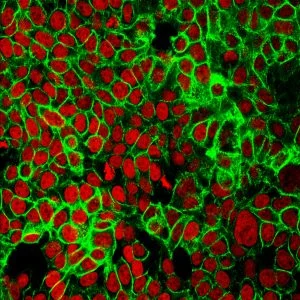Featured Products
Explore Products- In-Stock Tumor Cell Lines
- Human Orbital Fibroblasts
- Human Microglia
- Human Pulmonary Alveolar Epithelial Cells
- Human Colonic Fibroblasts
- Human Type II Alveolar Epithelial Cells
- Human Valvular Interstitial Cells
- Human Thyroid Epithelial Cells
- C57BL/6 Mouse Dermal Fibroblasts
- Human Alveolar Macrophages
- Human Dermal Fibroblasts, Adult
- Human Lung Fibroblasts, Adult
- Human Retinal Muller Cells
- Human Articular Chondrocytes
- Human Retinal Pigment Epithelial Cells
- Human Pancreatic Islets of Langerhans Cells
- Human Kidney Podocyte Cells
- Human Renal Proximal Tubule Cells




 Through the cathepsin S-dependent vacuolar pathway, these CAFs proficiently cross-present antigens to cytotoxic CD8+ T cells, leading to a dampened cytotoxic T cell response. Functioning as pivotal components within the tumor microenvironment, CAFs wield substantial influence over tumor growth and metastasis dynamics. While research underscores CAFs’ potential to intensify malignant tumor aggressiveness, contrasting findings highlight their capability to restrain cancer progression.
Through the cathepsin S-dependent vacuolar pathway, these CAFs proficiently cross-present antigens to cytotoxic CD8+ T cells, leading to a dampened cytotoxic T cell response. Functioning as pivotal components within the tumor microenvironment, CAFs wield substantial influence over tumor growth and metastasis dynamics. While research underscores CAFs’ potential to intensify malignant tumor aggressiveness, contrasting findings highlight their capability to restrain cancer progression.